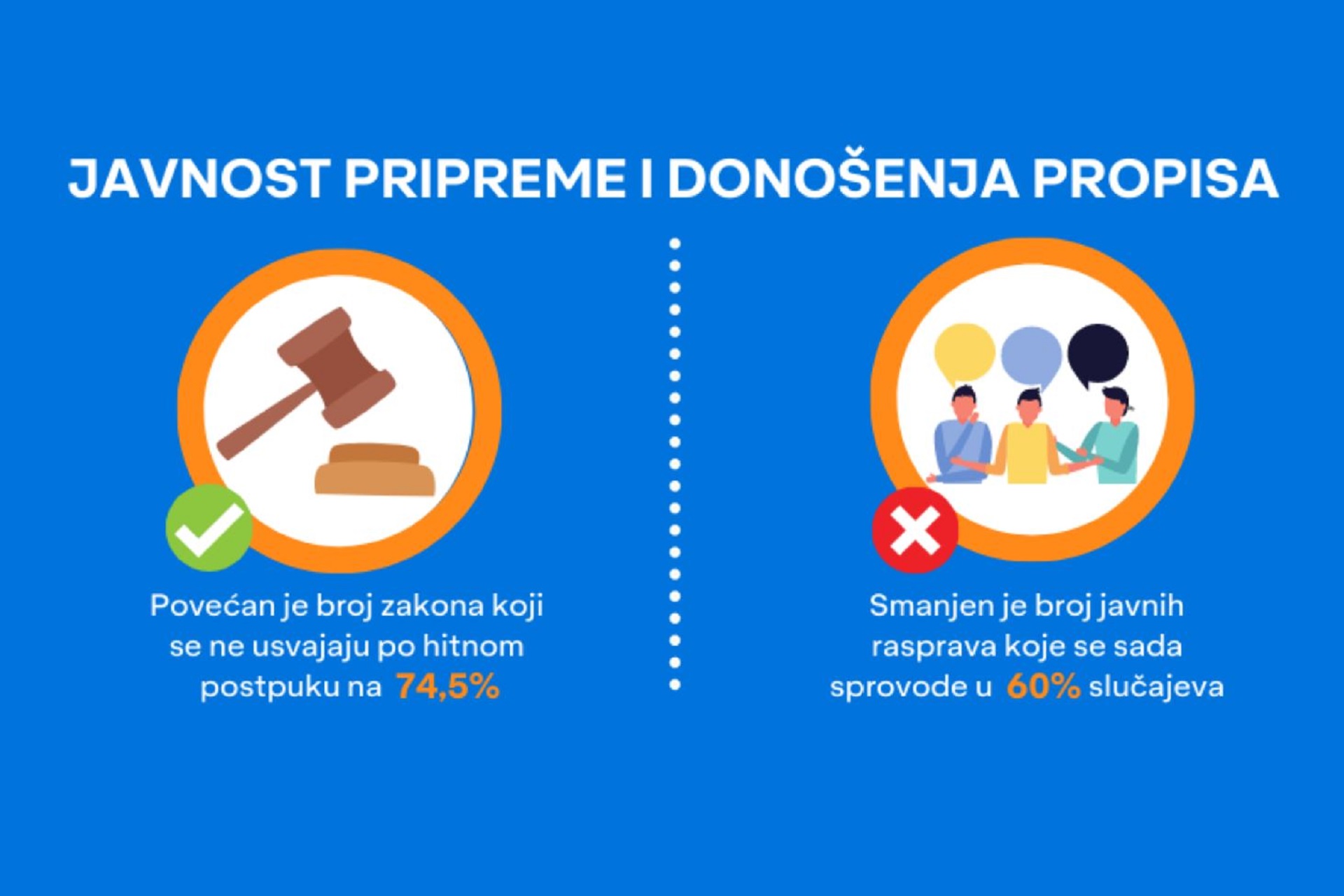Corona virus pandemic doesn't do a favor to law adoption process in Serbia
The corona virus pandemic in 2020 has not only disrupted the functioning of the economy, but also had a bad effect on the quality of regulations, according to the Regulatory Index of Serbia, published by NALED. With 46.3 points out of a possible 100, that is a weaker result compared to RIS from 2016, which amounted to 50.6 and shows that even after six years, the regulatory environment continues to suffer with the same challenges.
Insufficient frequency of public debates and delays in the adoption of bylaws, the share of laws passed by urgent procedure, lack of business impact analysis, the administrative burden imposed by regulations and failure to implement the plan of legislative activities of the Government of Serbia. , and where there is room for improvement - these are just a part of segments in the process of the legislation adoption process monitored RIS, with much room for progress.
- Despite the fact that 2020 was the "COVID" year and that the first half was dedicated mainly to the adoption of regulations to mitigate the negative effects, there have been several positive developments. During that year, less than 15% of the laws relevant for businesses were passed by urgent procedure, compared to 25% in 2019. The fact that businesses set aside 116 billion dinars for the 20 largest non-tax levies in 2020, which is 30 billion dinars less than the year before, can also be considered a positive development, but it is still significantly more than in 2016, when businesses paid 73 billion - says Vladislav Cvetković, President of NALED Managing Board.
Compared to 2019, the delay in the adoption of bylaws has been significantly reduced, from an incredible 826 to 465 days. However, the situation is worse compared to six years ago, when bylaws were 350 days late. An additional negative aspect is that in 2020, only 9 of the possible 119 by-laws were adopted, this being the worst rated indicator in RIS. This can also be attributed to the corona effect and the delay in the operationalization of laws due to all capacities being focused on addressing the consequences of the pandemic.
The previous year continued the unfavorable trend of laws not being planned in advance, with two thirds of adopted laws not following a previously set plan. In 2020, out of 133 adopted laws, only 38 were actually on the Government's agenda, while the rest can be considered "unplanned".
Finally, another unfavorable trend that persists is the failure to involve the interested public in the process of preparation and adoption of regulations. A public debate was organized for 13 of the 41 laws that have an impact on the business, which is twice as low compared to 2016.
- Public debate is obligatory if the law significantly changes the regime in one area or if it regulates issues of special interest to the public. Unfortunately, there are various attempts to justify why a public debate was not organized and different interpretations of what is a slight change in the law. However, in some cases, they are organized quite thoroughly, with round tables, public gatherings, presentations, consultations - explains Cvetković.
The best rated segment of the regulatory environment is once again the availability of information. As many as three quarters of ministries respond to requests for information of public importance, but there is still a remark that the most important content on ministry websites, such as a list of regulations or contact forms, are not easily noticable, but can only be found after an extensive search of websites.



